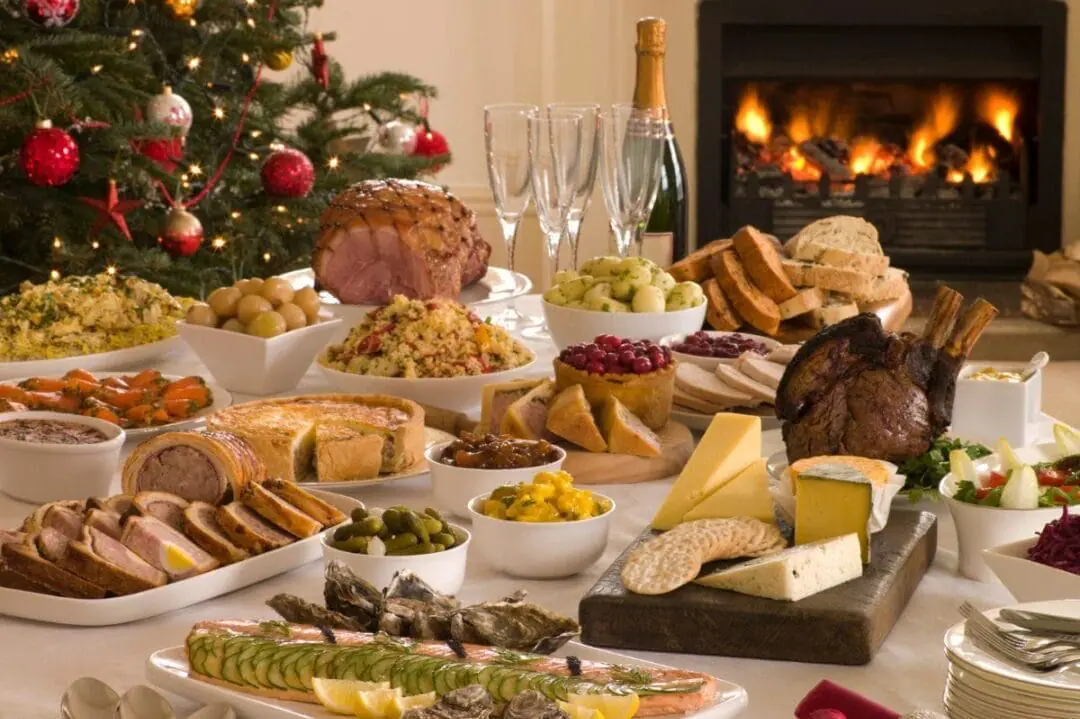How to avoid common mistakes and save money on your holiday spread
(AP) — We all want that perfect holiday spread, but blowing the budget isn’t it. Common mistakes like buying food in bulk or splurging on specialty ingredients often sneak up on most people. You should think ahead to avoid these traps by sticking to a plan, watching for deals and keeping it simple.
Not budgeting wisely for ingredients
If you’re planning a holiday meal, setting a realistic budget can help you avoid spending more than you planned. First, set a reasonable budget for your holiday spread and shop at different grocery stores to save money. Keep an eye out for sales and promotions so you know what items to pick up and where.
Using coupons or taking advantage of discounts will reduce your grocery bill. Keep in mind that seasonal ingredients are usually cheaper. Choose side dishes with seasonal veggies because they not only taste better but also help you stay within your budget. If canned is cheaper than fresh, consider a sweet potato casserole with canned yams versus fresh ones.
Not choosing a simple menu
When it comes to holiday meals, less can be more. Focus on quality, not quantity, by limiting the number of dishes you cook. This doesn’t just allow you to save money; it also alleviates stress and avoids holiday meltdowns. Choose recipes that can work for multiple diets, and if you feel like it, consider a hearty vegetable soup. It can act as a starter and a main dish for vegetarians.
Crowd-pleasers are a must. Those are the dishes everyone looks forward to every year. A themed menu can make it a breeze to plan and add extra excitement to your meal. If you choose a theme, such as comfort classics or a winter wonderland, your dish selection becomes much clearer. It also increases the overall dining experience and makes it memorable.
Not organizing the meal
A well-organized meal prep timeline can be your best friend around the holidays. Start by breaking down the tasks you have into bite-sized steps. This might involve prepping some ingredients multiple days in advance or organizing some dishes a day in advance.
Labeling is another handy trick. Clearly label dishes and ingredients to save time when you’re in the middle of cooking. Creating a cooking workspace that’s free of distractions can also help with focus.
Not shopping ahead of time
One of the smartest things you can do is start your grocery shopping early. That way, you avoid the last-minute crowds, and key ingredients won’t run low. Keep a shopping calendar so you know when sales will occur. This way, you can stock up on essentials right when they go on sale.
Buying in bulk, especially for non-perishables, is another great way to save both time and money. Planning a menu based on traditional family favorites keeps your meals enjoyable. It also ensures you have the essentials, so you don’t need to make spontaneous store runs.
Not encouraging guest contributions
Sometimes, the best holiday meals are where everyone rolls up their sleeves to help. Encourage your guests to bring a dish or drink to share. It lightens your load and adds variety to the meal. Create a sign-up sheet, so everyone knows what to bring.
Including contributions from guests creates an atmosphere of working together. When the day comes, gratitude for everyone’s efforts will put you in a better mood for the holiday. Plus, a potluck-style meal is a great way to cut down on food costs and minimize cooking.
You’ll also learn about new recipes and flavors you might not have tried before. Everyone brings a little of their personality to the table, sparking conversations and creating connections over the shared experience of food. It’s a wonderful way to make the holiday meal feel more personal and memorable.
Not planning for leftovers
Planning ahead for using leftovers in other meals is a budget-friendly strategy. Consider what you can do with leftover ingredients. Turn leftover mashed potatoes into delicious shepherd’s pie. In the meantime, add those additional roasted veggies to a hearty beef stew, or incorporate them into an omelet for breakfast. Share these ideas with your guests, so they’re inspired to take some goodies home and enjoy them later.
Don’t forget about freezing excess food. Freezing is a great way to keep your holiday dishes around. You can freeze items like turkey, gravy and even some desserts for later meals. Ensure they are in airtight containers or freezer bags to prevent freezer burn. This way, you’re not just saving money; you’re getting the most out of your resources.
Ignoring portions and quantities
One of the easiest ways to minimize food waste during the holidays is to pay attention to portion sizes and quantities. Start by gauging portion size based on your guests’ preferences. This strategic planning can prevent surplus foods from being wasted.
Taking note of how your guests eat your holiday spread during the meal can help you tweak future planning and portions. Pay attention to which dishes are left on the table and which ones disappear in a blink. This allows you to make smarter decisions for your next get-together. Choose one type of your favorite roll or dessert to serve. This will simplify your planning and help reduce waste.
Enjoy a stress-free holiday meal
Planning a holiday feast shouldn’t be like putting together a puzzle. Skip these common mistakes to save money and stick to your budget. Plan wisely, shop sensibly and minimize waste.
The joy in these meals isn’t just about eating together. It’s all about the memories you build with your loved ones while cooking with them. So, make them count.
Lisa MarcAurele is a blogger and cookbook author based in Connecticut. She created Little Bit Recipes to help people save money by minimizing leftovers when cooking for one or two people. Lisa enjoys hiking and taking scenic day trips around New England.
